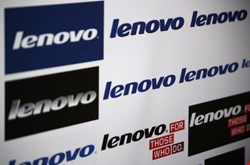
At first glance this looks like a huge loss; but there are other factors involved. Firstly, Motorola had around $4 billion in cash and tax credits. Secondly, Google sold Motorola's set-top box assets for $2.4 billion. Now it has sold the remains to Lenovo, but retained Motorola's patents (around 17,000), for $2.91 billion.
Once it is all calculated, it means that Google has paid something like $3.2 billion for 17,000 patents. In comparison, the companies that bought Nortel's patents paid around $4.5 billion, making it in that sense a pretty good deal.
Google CEO Larry Page Page explained the process yesterday. "We acquired Motorola," he wrote in the company's official blog, "to help supercharge the Android ecosystem by creating a stronger patent portfolio for Google and great smartphones for users." The first part seems to have been successful, while the latter not so. The revitalized phone line has been well reviewed, but not widely purchased.
But, "on the intellectual property side, Motorola’s patents have helped create a level playing field, which is good news for all Android’s users and partners." It's debatable whether Google thought it could make money out of hardware in direct competition with its software customers (there were rumors that Samsung was so upset it threatened to dump Android), or whether the patents were always the motivation.
Certainly the relationship with Samsung seems to have been healed. Recent reports suggest that Samsung has agreed to cut back on its customizations of Android and concentrate on the 'official' Google version. If true, this would make Android security updates and patches more efficient for Samsung users in the future. The two companies have also agreed to a broad patent cross-licensing deal.
The Verge reported, "Samsung's Seungho Ahn says 'Samsung and Google are showing the rest of the industry that there is more to gain from cooperating than engaging in unnecessary patent disputes,' a pretty clear shot at Apple, which has been locked in patent suits for years with Samsung and Motorola Mobility (predating Google's acquisition of the manufacturer)."
The deal also makes huge sense for Lenovo, which earlier bought the ThinkPad laptop assets from IBM, but kept the branding. Lenovo is a growing force in China's phone market, but has little presence in the huge US and European markets. The purchase of Motorola could change this dramatically.
"Lenovo has the expertise and track record to scale Motorola into a major player within the Android ecosystem," suggests Page. "They have a lot of experience in hardware, and they have global reach. In addition, Lenovo intends to keep Motorola’s distinct brand identity—just as they did when they acquired ThinkPad from IBM in 2005. Google will retain the vast majority of Motorola’s patents, which we will continue to use to defend the entire Android ecosystem."
Now it just needs the US authorities (and the Chinese authorities) to approve another major sale of US hardware to China.